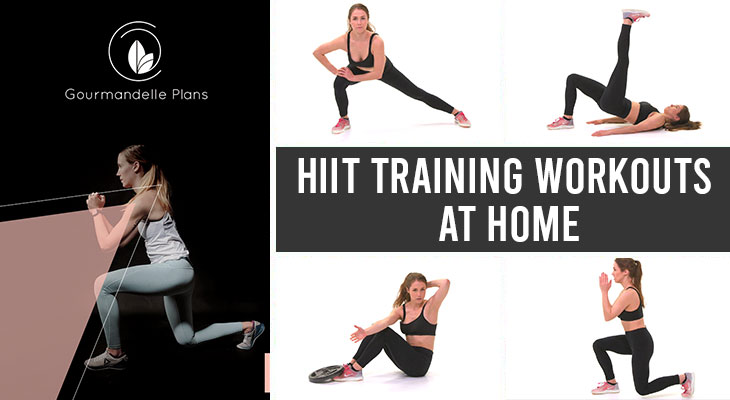10 Frequently Asked Questions About Yoga – Answered! | Yoga for Beginners
Here are 10 frequently asked questions about yoga – answered by an experienced Yoga Teacher and Ayurveda Lifestyle Counselor. Get your answers and start practicing yoga! 🙂
I am happy to announce a new section on my blog – Yoga for Beginners! The articles in this section will be written by Mirela Ivaz – a Yoga Teacher and Ayurveda Lifestyle Counselor. She is certified by the Yoga Alliance RYT500 and STED Council, obtained in India, where she travels regularly for perfecting her yoga teaching skills.
Mirela is particularly attracted by the direct interaction with people, driven by curiosity and passion for sharing her personal knowledge and experience. She teaches yoga in Bucharest, leads workshops and regularly organizes relaxation and revitalization camps in Romania. Mirela’s most recent workshop, after her return from India, she dedicated herself to reaffirming the female power. Find out HERE the details about this great event and how to reserve a seat.
The articles in the Yoga for Beginners section will contain lots of useful info to help you get started with yoga! Hope you’ll find them useful and can’t wait to hear your feedback on this. 🙂 We are even considering launching a yoga eCourse for you! What do you think?
Contents:
- “I see only pictures of super-fit models promoting yoga in twisted, high-core balanced postures. I’m afraid I’ll make a fool of me because I won’t be able to keep up!”
- “I am a sedentary person and never worked out! However, now I want to start making some changes and get fitter because I found out that exercise is good for the health and supports a good state of mind. I think yoga can be a way to begin. What type of yoga is the right one for me? “
- “I have some health problems and although I’m aware of the yoga benefits, I don’t know where to start.”
- “I was about to start yoga when I found out I got pregnant. Is yoga recommended in pregnancy?”
- “I have recently given birth to a baby, I want to get back into shape and I think about starting doing yoga. Do you have any tips?”
- “I’m not flexible. Can I do yoga? “
- “Is Yoga a Religion? I do not want to contradict my religious beliefs. “
- “How to prepare for the first yoga session? What do I need to know?”
- “How many times a week do I need to dedicate to yoga to experience its benefits?”
- “I’m afraid of what I can discover about myself.”
Yoga. A simple search on Google returns 821 million references in less than a second. In a world where we are so vigorously connected online, the term “yoga” may not be that unfamiliar to you.
You read about it on the Internet, friends told you about the yoga classes they attend to and maybe you even found a yoga studio near your home.
You already have the impression that yoga is “something else”, different than what you’ve done so far, yet here you are with a beginner’s curiosity, eager to find out what yoga really is all about.
Leaving the yoga health benefits aside (we’ll discuss them in the future articles), today we’ll discuss what might hold you back from trying yoga, what are the challenges you are facing at this time and how we can tackle them.
The scenarios presented in this article are the ones I meet the most as Yoga Teacher. You can find yourself amongst them and they may even clarify some of your questions in regard to starting practicing yoga.
10 Frequently Asked Questions About Yoga – Answered!
What’s stopping you from practicing yoga and how you can solve these problems
- “I see only pictures of super-fit models promoting yoga in twisted, high-core balanced postures. I’m afraid I’ll make a fool of me because I won’t be able to keep up!”
Think about it this way. If all the clothes would be just one-size-fits-all, just like on the mannequins, we probably wouldn’t even have to bother going inside the store!
Intuitively, you know that yoga is not just for super-fit people. Just look around you! The majority resides in diversity: a multitude of shapes and sizes, that’s what we are. Thus, we have different types of yoga, adjusted for different types of people: Power Yoga, Gentle Yoga, Yoga for Beginners, Restorative Yoga, Yoga 60+ etc. – these are some of the most common approaches for yoga classes that take into account age, physical condition, possible health issues, etc.
My advice when choosing a yoga studio/class/program is to make sure it is on your level: beginner, in this case. Yoga for Beginners, Yoga Basics, etc. might be some suggestions for classes/programs you should start with.
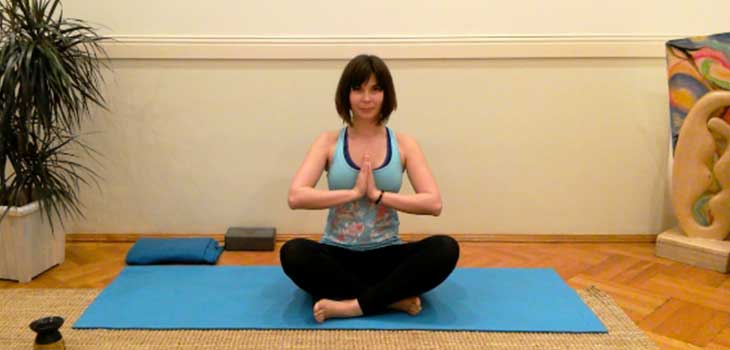
- “I am a sedentary person and never worked out! However, now I want to start making some changes and get fitter because I found out that exercise is good for the health and supports a good state of mind. I think yoga can be a way to begin. What type of yoga is the right one for me? “
First of all, congratulations! As far as it is possible for you, physical exercise is welcome! I recommend you start with Gentle Yoga, a yoga approach that uses a set of gentle stretches to relax the joints and muscles. The emphasis is on breathing and body awareness. Also, Beginner Yoga can be a good choice and if applicable to your age, Yoga 60+.
- “I have some health problems and although I’m aware of the yoga benefits, I don’t know where to start.”
A good approach for your situation is to have individual yoga sessions. They allow you to welcome yoga in a friendly environment that personalizes yoga to your special needs.
This type of approach is safer and more effective if you suffer from chronic pain and you need individual attention and adaptation. The following health conditions are very receptive to a regular, individualized yoga practice:
- Chronic pain, such as back pain, neck, and ear pain or hip pain;
- Overweight and obesity;
- Breathing difficulties;
- Sleep disorders, such as overnight sleeping or difficulty falling asleep;
- Restrictions on mobility;
- Stress and anxiety;
- Digestive discomfort, such as irritable bowel syndrome;
- Generalized disorders such as arthritis.
Thus, a first step involves discussing and establishing together with the Yoga Teacher the goals you are pursuing. In the next step, he or she will develop a personalized yoga program, will guide you through step by step, track the evolution over time and, if necessary, make the necessary adjustments in the program.
I use this approach with my clients for whom a group yoga practice is not recommended. If you are in Bucharest and consider I can guide you through, write me on contact@ivaz.ro.
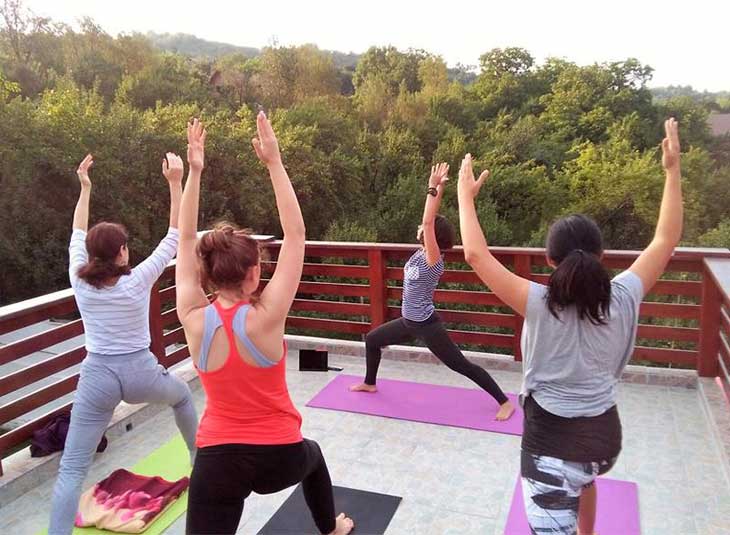
- “I was about to start yoga when I found out I got pregnant. Is yoga recommended in pregnancy?”
Yes. Yoga can be extremely beneficial during pregnancy as long as you take certain precautions and consult with your gynecologist. There are several restrictions that you need to be aware of, and the physical postures typically require a special adaptation. For this, Prenatal Yoga sessions are best suited for you.
Yoga during pregnancy helps you breathe and relax, which in turn allows you to adapt to the physical requirements of pregnancy, labor, birth, and maternity. Prenatal yoga calms both the mind and the body, allowing the release of the emotional stress felt by the body during pregnancy.
Also, in a prenatal yoga class, you meet up with future moms and embrace this journey together.
- “I have recently given birth to a baby, I want to get back into shape and I think about starting doing yoga. Do you have any tips?”
Physicians typically recommend six weeks of recovery time for fresh moms after normal delivery and even more after a cesarean section. Check with your doctor when physical exercise is suited for you and once you get the consent, you can start practicing yoga. I recommend the classes of Postnatal Yoga.
Expect to feel that your body responds differently now, compared to the period before you got pregnant. Take it easy, with gentleness and do not push yourself too hard.
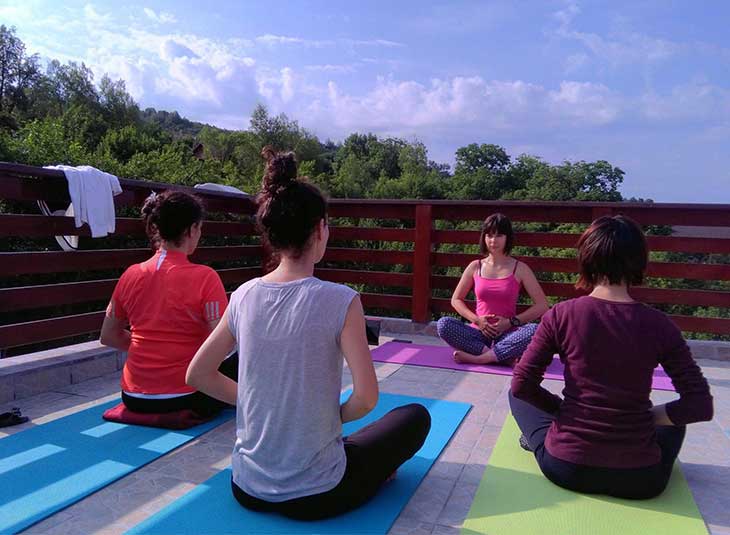
- “I’m not flexible. Can I do yoga? “
Yes! Many people think they have to be flexible to do yoga. What I tell my clients who feel a limitation of not being flexible enough is that yoga is a way to discover your body and explore its limitations, so think a little in the future and don’t feel constrained about the situation you are in now.
The degree of flexibility and mobility of the body has a natural tendency to diminish over time and can lead you even to the welding of several spine vertebrae. This feeling of restriction in the movements is affecting both the general state of health – with back, hip, or knee pain, digestive and breathing problems, etc. as well as the way you live your emotions, the perspective you have about life, your relationships with others, etc.
Through yoga practice, you work with the flexibility and mobility of the body so you will find out that you become even more flexible. This increased easiness in your movements will be accompanied by strength, coordination, improved overall health, a state of well-being and confidence in your own abilities.
- “Is Yoga a Religion? I do not want to contradict my religious beliefs. “
Yoga is not a religion. It’s a philosophy that began in India about 5000 years ago. One of the most popular yoga texts is Yoga Sutra, written by Patanjali millennia ago. These writings provide a framework for spiritual growth and control over the physical and mental body.
Yoga sometimes combines with other philosophies, such as Hinduism or Buddhism, but they are not necessary for studying or practicing yoga.
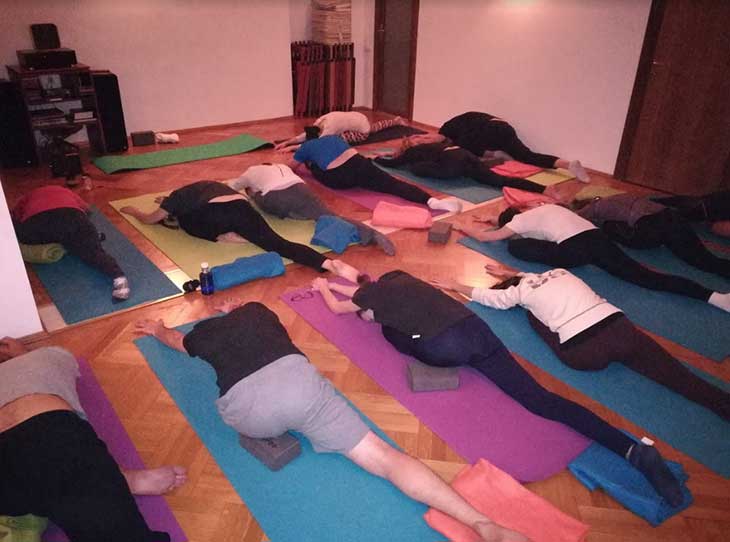
- “How to prepare for the first yoga session? What do I need to know?”
All you need to start practicing yoga is body, mind and a little curiosity. Clothes need to be lightweight, sports style. Yoga practice is done in socks or barefoot. Generally, studios provide you with the mats and all that is needed to do your practice.
Check in advance with the studios which classes are right for you; they depend on physical condition, age, your personal preferences, etc.
What I recommend to my clients is to make an opinion about yoga only after a minimum of 4 sessions (as a frequency, at least once a week). During the first session, you may not feel quite “in the flow”; habit and ease in yoga practice come gradually and you will notice that you follow the teacher’s guiding more effectively with each other session. Also, the benefits become then clearer for you.
It is also possible to realize that the yoga style you first approached does not suit you or feels like you do not resonate with your teacher. Stay focused on your motivation to practice yoga and try until you discover your style and the teacher. After all, Yoga is a personal experience and a personal voyage!
Another aspect to consider is that the last meal shall be taken at least 2-3 hours before a yoga session. The practice of yoga involves a series of movements in which we twist on one side and the other or we lean back and forth. If you have not completely digested the last meal, it is possible you will experience discomfort. If you have a fast digestive system and you are afraid of getting hungry during yoga classes or feel weak, take a light snack: a yogurt, 2-3 tablespoons of muesli, 2-3 digestive biscuits, some dehydrated fruits, about 30 minutes to one hour before the course.
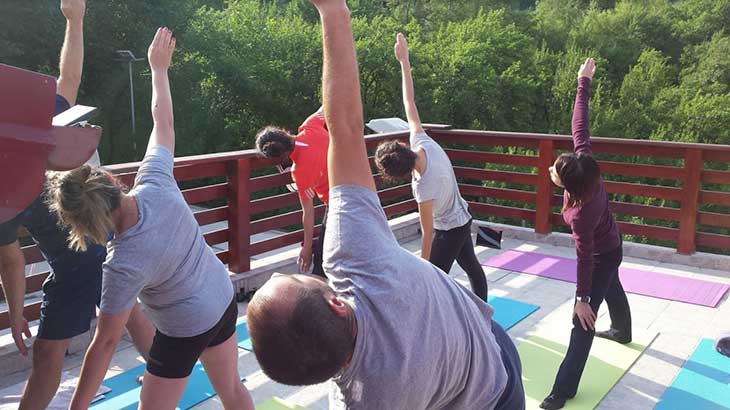
- “How many times a week do I need to dedicate to yoga to experience its benefits?”
Yoga is amazing – even if you practice it for only one hour a week, you will experience the benefits of the practice. If you can do more than that, you will certainly get more benefits. You can choose to practice yoga twice or three times a week for an hour or an hour and a half every time.
If you can only do 20 minutes a day, that’s good. Do not let time constraints or unrealistic goals to be an obstacle – it’s important to do what you can to keep regularity in your yoga practice. It is possible that after a while you naturally wish to extend your yoga practice.
One way I help my clients is with recorded yoga sequences, which are from 10 to 30 minutes long. In this way, I encourage them to maintain their continuity in yoga practice, to practice yoga at home, during their holidays or even on business trips!
- “I’m afraid of what I can discover about myself.”
I admit this was my fear too when I decided to find more about yoga and meditation. Being alone with myself, sitting quietly and meditating, sounds as if I will leave the door open for the “monsters” to invade my mind: fears, anxieties, worries, anger, sadness, panic.
Generally speaking, we can admit that we do not like to stay in suffering. Our tendency is to run away from difficulties, choosing a fast and demanding lifestyle, or we simply drawing ourselves into different activities just to forget and occupy our minds. But the more we try to ignore or neglect our unpleasant feelings, the more they try to surface, bursting out, following us. And from here to health issues and illness is just one step. Read about the Link between Emotions and Health and Ways to Unleash Mental and Emotional Tensions (in Romanian, but you can use Google Translate).
For me, I wanted to discover more about myself, about the human and spiritual nature, about the capacities of the mind and everything that leads me to a state of harmony, the general feeling of well-being: in my own skin, the relationships with others, at home or at work. That meant facing the negative emotions and feelings and finding a way to communicate with them. Yoga and, implicitly meditation, have supported me in this direction.
Yoga releases mental tensions, treating them physically, acting somato-psychically, from the body to the mind. Through yoga and meditation, you become the observer of your own thoughts and experiences and allows you to address them and find solutions from a space other than the one you are in now. Yoga and meditation support the anchoring in the space of balance and equilibrium, which best reflects who you really are, what are your real needs and aspirations.
In addition, you learn that you are not alone in this journey! You discover that you are joined by a community that understands and supports you, you meet an environment in which you feel safe and where you can grow.
If you make this, please leave a review and rating if you liked this recipe! ★★★★★





